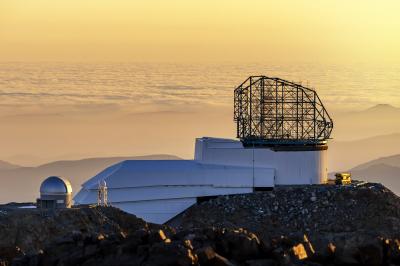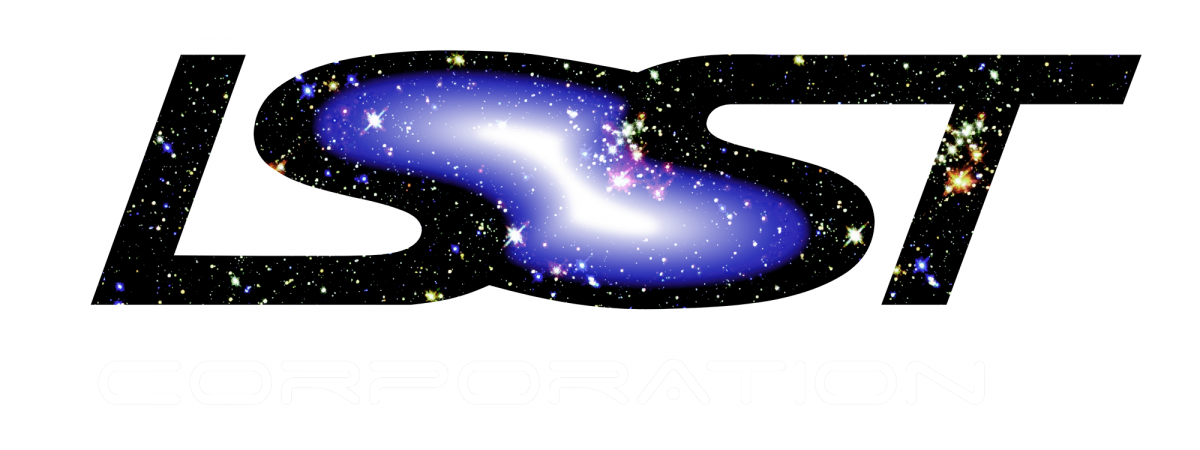Dark matter constitutes roughly 85% of the matter density of the Universe, and represents a critical gap in our understanding of fundamental physics. Despite extensive experimental efforts, the only robust, positive empirical measurement of dark matter continues to come from cosmological and astrophysical observations. The Large Synoptic Survey Telescope (LSST) offers a versatile platform to investigate dark matter. This workshop will focus on new ideas for probing the fundamental nature of dark matter with LSST and other future observations.
Cosmological and astrophysical observations probe the physics of dark matter through its impact on structure formation throughout cosmic history. Fundamental properties of dark matter — e.g., particle mass, self-interaction cross section, coupling to the Standard Model, and time evolution — can imprint themselves on the macroscopic distribution of matter in a detectable manner. With supporting theoretical efforts, follow-up observations, and cross-correlation studies, LSST will be sensitive to several distinct classes of dark matter models, including particle dark matter, field dark matter, and compact objects.
Potential discussion topics for this workshop Include:
- Warm and self-interacting particle dark matter
- Compact objects
- Ultra-light and fuzzy dark matter
- Near-field cosmology
- Gravitational lensing (weak, strong, and micro)
- Galaxy clusters
- Large scale structure
More information on the LSST dark matter effort can be found at https://lsstdarkmatter.github.io.
Cosmological and astrophysical observations probe the physics of dark matter through its impact on structure formation throughout cosmic history. Fundamental properties of dark matter — e.g., particle mass, self-interaction cross section, coupling to the Standard Model, and time evolution — can imprint themselves on the macroscopic distribution of matter in a detectable manner. With supporting theoretical efforts, follow-up observations, and cross-correlation studies, LSST will be sensitive to several distinct classes of dark matter models, including particle dark matter, field dark matter, and compact objects.
Potential discussion topics for this workshop Include:
- Warm and self-interacting particle dark matter
- Compact objects
- Ultra-light and fuzzy dark matter
- Near-field cosmology
- Gravitational lensing (weak, strong, and micro)
- Galaxy clusters
- Large scale structure
More information on the LSST dark matter effort can be found at https://lsstdarkmatter.github.io.
Invited Speakers
| Simon Birrer UCLA | Jonathan Blazek EPFL | Alyson Brooks Rutgers |
| Chihway Chang KICP | Francis-Yan Cyr-Racine University of New Mexico | William Dawson Lawrence Livermore National Lab |
| Adrienne Erickcek UNC Chapel Hill | Maurizio Giannotti Barry University | Vera Gluscevic USC |
| David Hendel University of Toronto | Marc Kamionkowski Johns Hopkins University | Rocky Kolb University of Chicago |
| Alexie Leauthaud UCSC | Ting Li Fermilab / Carnegie Observatories | Jennifer Marshall Texas A&M University |
| Sam McDermott FNAL | Ethan Nadler KIPAC/Stanford | Annika Peter OSU |
| Neelima Sehgal Stony Brook University | Nora Shipp University of Chicago |
Organizing Committee
| Keith Bechtol UW Madison/LSST | Alex Drlica-Wagner Fermilab/UChicago | Yao-Yuan Mao Pitt PACC |
| Annika Peter OSU | Nora Shipp University of Chicago |
Location
Room 401, William Eckhart Research Center (ERC),
Kavli Institute for Cosmological Physics,
5640 South Ellis Avenue,
Chicago, IL
Kavli Institute for Cosmological Physics,
5640 South Ellis Avenue,
Chicago, IL




